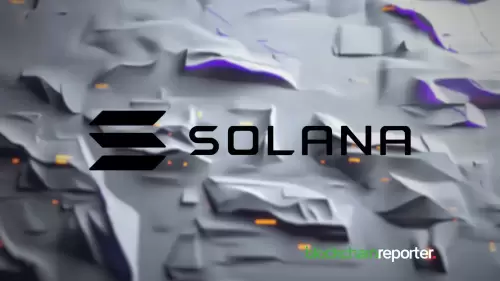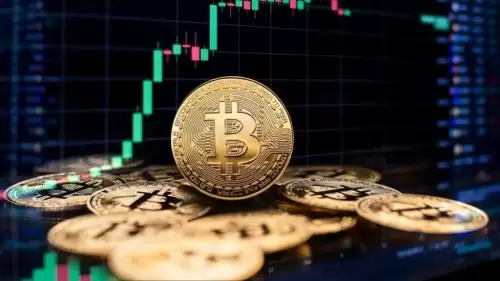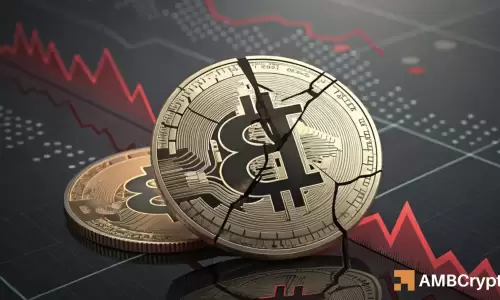 |
|
 |
|
 |
|
 |
|
 |
|
 |
|
 |
|
 |
|
 |
|
 |
|
 |
|
 |
|
 |
|
 |
|
 |
|
Cryptocurrency News Articles
XRP vs. Cardano: Comparing the Fundamentals, Use Cases, and Investment Potential of Two Prominent Altcoins
May 14, 2025 at 04:21 pm

As cryptocurrency markets mature, informed investors are increasingly scrutinizing the fundamentals, use cases, and long-term investment potential of digital assets. Beyond Bitcoin and Ethereum, two projects that have captured attention for their unique value propositions are XRP, powered by Ripple Labs, and Cardano, developed by IOHK and a layered architecture PoS chain.
Both projects have ardent supporters and their pros and cons have been discussed at length. This article provides a comparative analysis of XRP and Cardano, examining their technology foundations, primary use cases, regulatory standing, and price forecasts.
Technology Fundamentals: Consensus and Architectural Design
Both XRP and Cardano are known for their distinctive approaches to scaling and decentralization. XRP operates on Ripple’s XRP Ledger, a decentralized public blockchain powered by a consensus protocol called the Ripple Protocol Consensus Algorithm (RPCA). Unlike proof-of-work (PoW) or proof-of-stake (PoS) models, RPCA relies on a list of trusted validators to reach consensus.
This enables extremely fast transaction processing—settlements occur in 3-5 seconds—making it ideally suited for cross-border payments, foreign exchange (forex) liquidity solutions, and facilitating seamless transactions between financial institutions.
On the other hand, Cardano, helmed by Ethereum co-founder Charles Hoskinson, employs a layered architecture and utilizes a peer-reviewed PoS consensus mechanism named Ouroboros. Designed with an emphasis on academic rigor, Cardano separates its settlement (Cardano Node) and computation (Plutus) layers for optimal security and efficient scalability. It also supports smart contracts through its Plutus platform, placing a strong focus on developing robust code and integrating formal verification techniques.
Key Purpose and Governance Distinctions
A key distinction between the projects is their primary purpose and focus on governance. XRP is largely viewed as a throughput-optimized cryptocurrency with a primary use case in facilitating liquidity for financial institutions. Its governance is largely centralized within Ripple Labs, which develops and maintains the XRP Ledger.
Cardano, on the other hand, is designed to be a highly scalable and interoperable blockchain platform that can support a decentralized ecosystem of applications. Its governance is more distributed, with stakeholders including IOHK, the Cardano Foundation, and community members participating in the decision-making process.
Cryptocurrency Price Analysis & Portfolio Strategies: May 2025
Current Price Points & Recent Performance
XRP Analysis
Current Position & Outlook
Source: Brave New Coin XRP Liquid Index
XRP has shown resilience in 2025, trading at $2.61. This follows an explosive 237% surge in 2024 following Donald Trump’s election, establishing XRP as the third-largest crypto asset excluding stablecoins. Technical indicators show XRP forming a promising pattern with increasing trading volume.
Price Predictions
Cardano (ADA) Analysis
Price Source: Brave New Coin Cardano Price Analysis
Current Position & Outlook
Cardano stands at $0.82, highlighting strong technological advancement despite price volatility. As Cardano is currently in a dip from its December 2024 highs, many see it as a buying opportunity and have faith in its long-term recovery. Recent protocol upgrades and growing developer activity bode well for Cardano’s fundamentals.
Price Predictions
Use Cases and Ecosystem Development
XRP’s primary use case is within global financial infrastructure. Financial institutions use Ripple’s network, RippleNet, for on-demand liquidity (ODL) and foreign exchange services. Despite setbacks from the ongoing U.S. Securities and Exchange Commission (SEC) litigation—which saw some resolution in 2023 with XRP being declared not a security in secondary sales but the case remaining active—Ripple has strengthened partnerships.
Its presence in Asia-Pacific and Latin America is expanding, and according to Ripple’s 2024 Q1 report, ODL volumes increased over 40% year-over-year, showcasing the burgeoning institutional demand for crypto.
While XRP is viewed as an enterprise-grade token designed for rapid and low-cost transactions, catering largely to the institutional market, Cardano is aiming to be a versatile blockchain platform. It's used for a broad range of decentralized applications—positioning it as a Layer-1 competitor to Ethereum in the long term.
As DeFi protocols and Web3 projects expand, Cardano is designed to support diverse use cases, from supply chain management and identity solutions to voting systems and gaming platforms.
Regulation and Investor Sentiment
Regulatory clarity is a pivotal factor for crypto market confidence. XRP has seen turbulent times with the SEC lawsuit against Ripple, filed in 2020, and the stifling effect it had on XRP’s adoption in the U.S. However, U.S. District Judge Analisa Torres’s partial ruling in July 2023 that XRP is not a security when sold on secondary markets provided some regulatory relief.
Despite this win, the broader legal battle is ongoing, and the full implications of the ruling are
Disclaimer:info@kdj.com
The information provided is not trading advice. kdj.com does not assume any responsibility for any investments made based on the information provided in this article. Cryptocurrencies are highly volatile and it is highly recommended that you invest with caution after thorough research!
If you believe that the content used on this website infringes your copyright, please contact us immediately (info@kdj.com) and we will delete it promptly.






























































